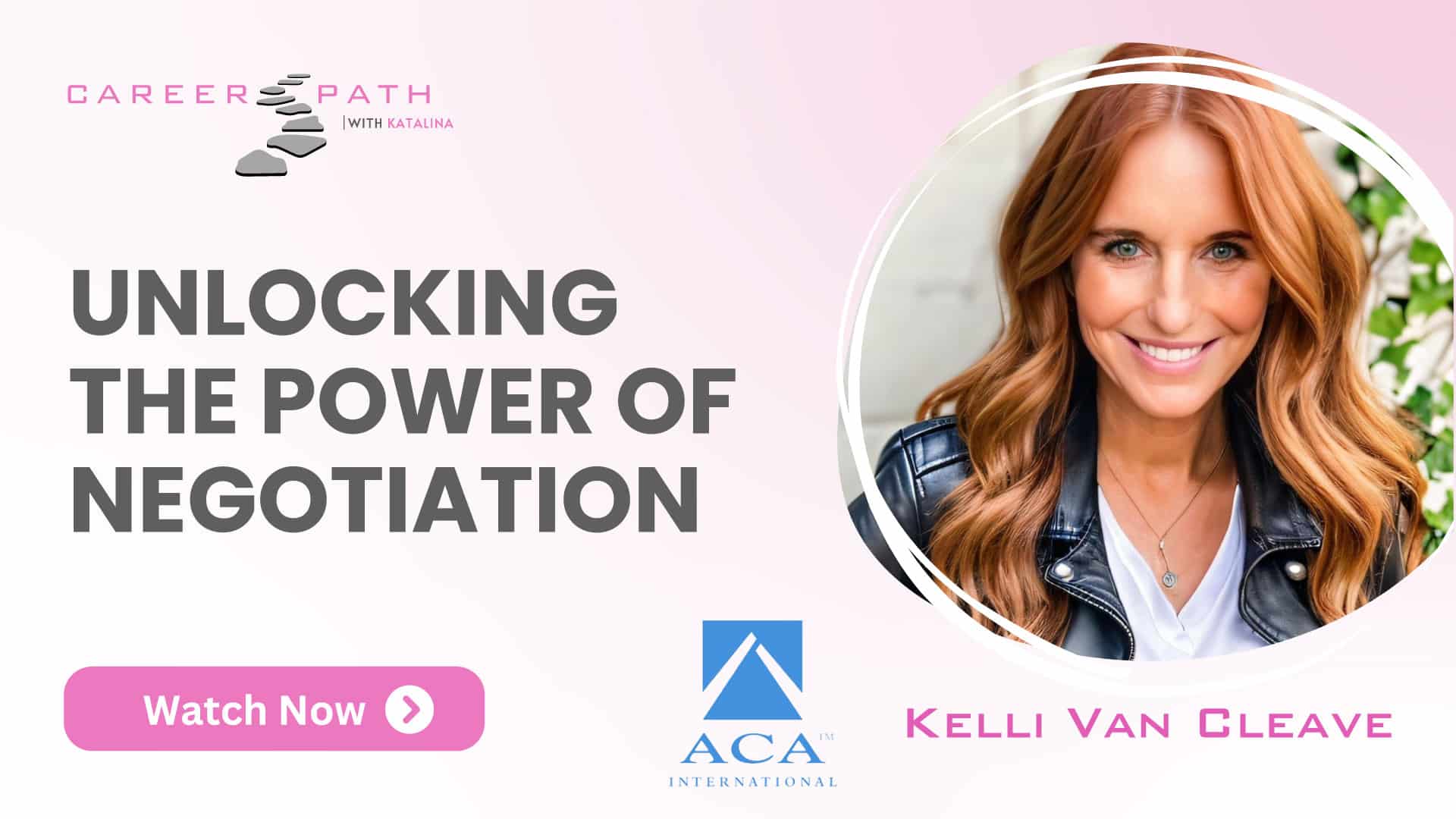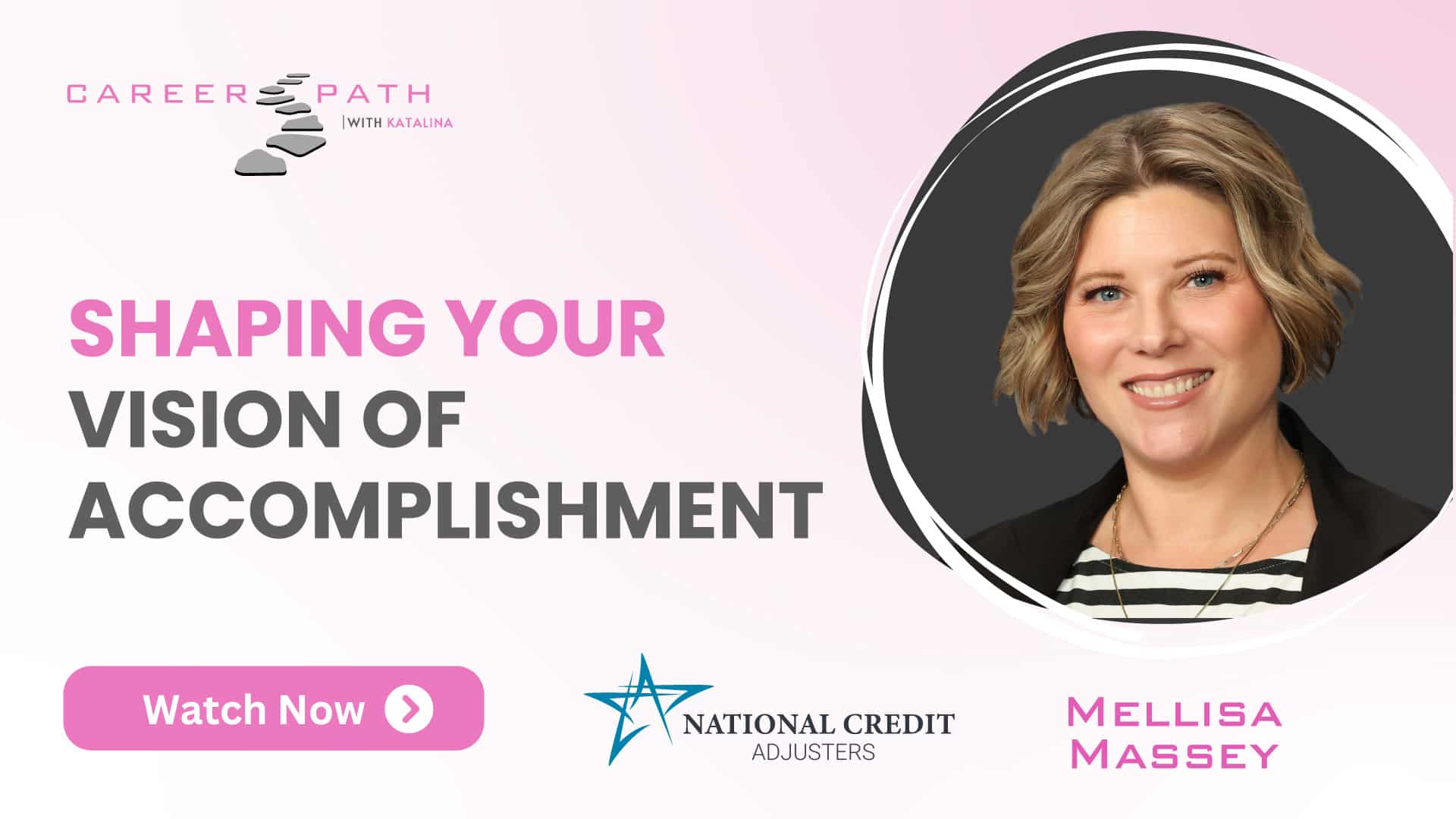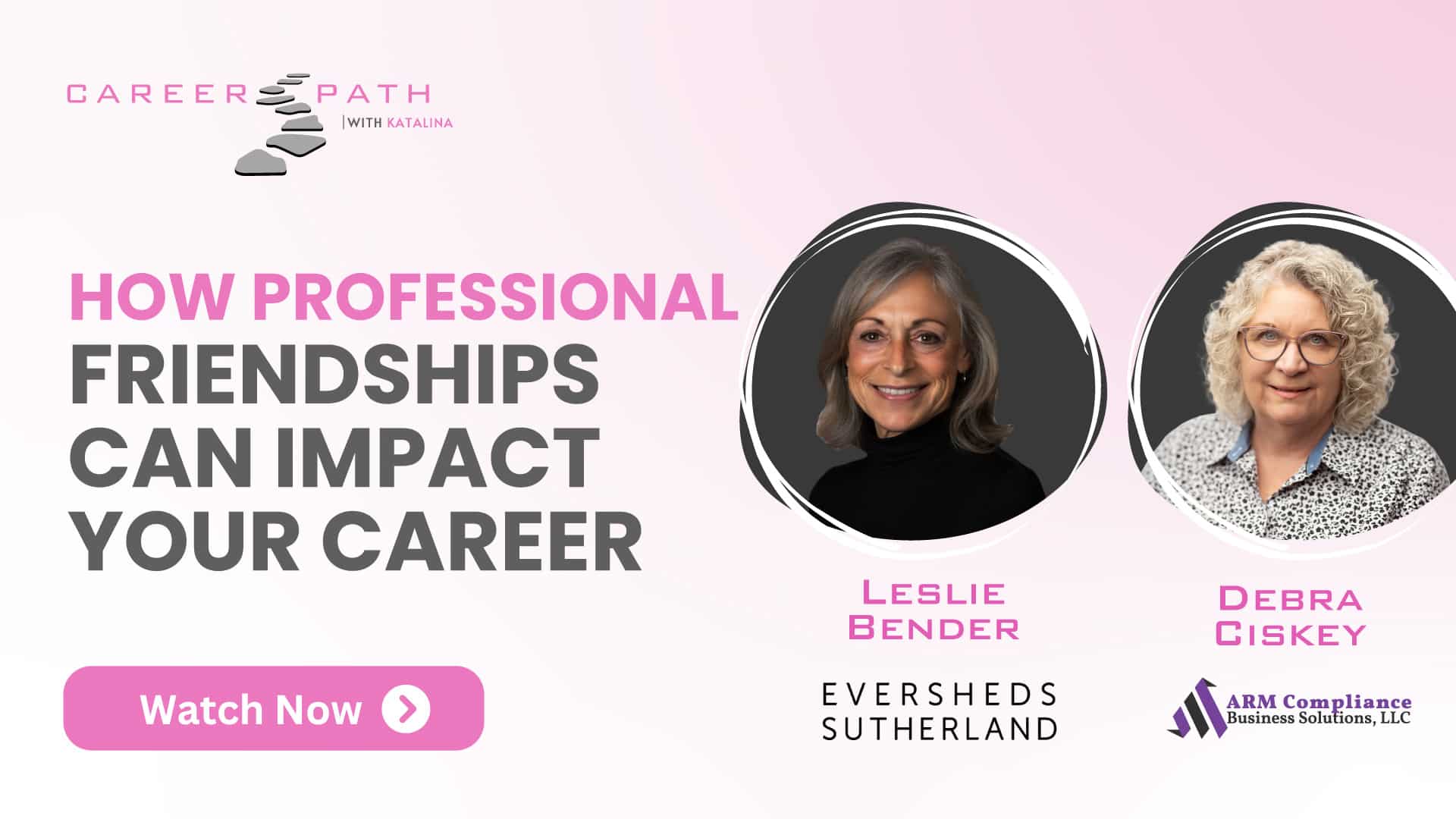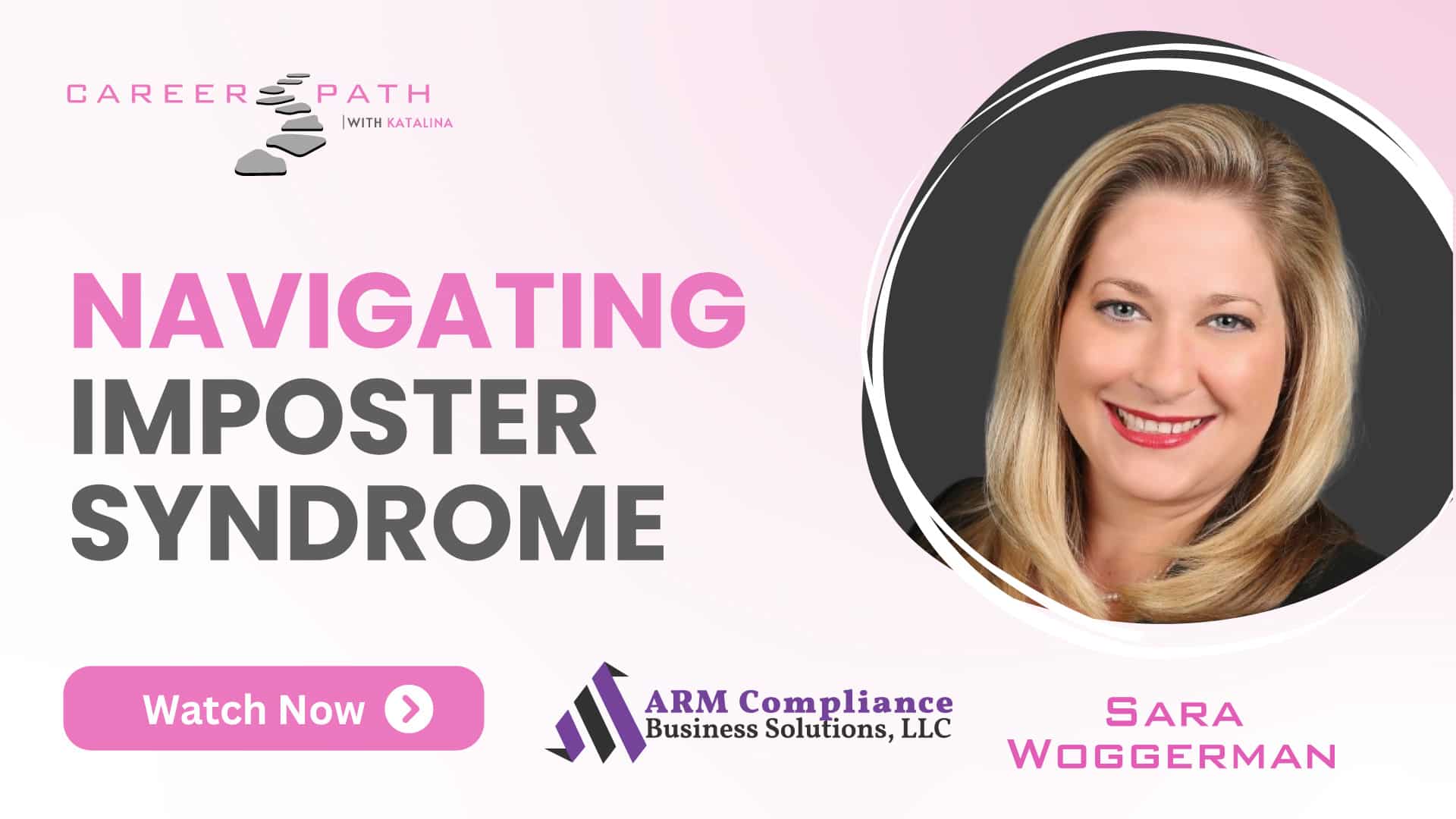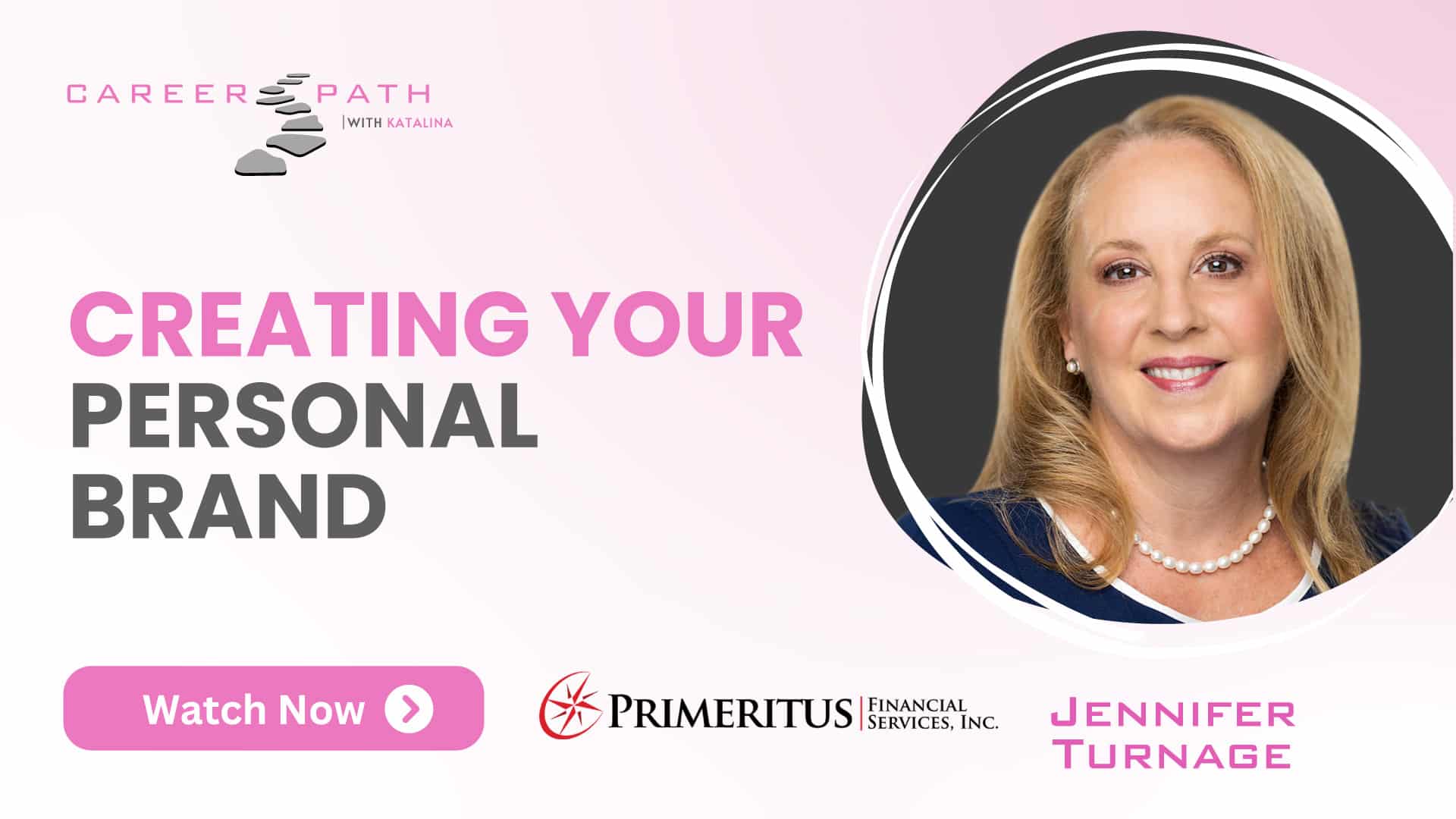Katalina (00:00)
Hello and welcome back to another episode of Career Path. I am your host Catalina. Today we will be discussing unlocking the power of negotiation. And here to discuss that with me, I have Kelly Van Cleave, who is the Director of Education at ACA International. Kelly, thank you so much for joining me today. I am so excited to be talking with you. Thank you. Would you like to tell us a little bit about yourself and how you got to where you are today?
Kelli Van Cleave (00:21)
I know, I'm so excited to be here.
So I always wonder how to answer that question, but I'm going to start by saying things that people probably don't know about me. I went to school to be basically sociology, criminology. My life dream was to be a probation officer, which makes me laugh because I actually did it for a while as an internship and it wasn't really everything that I thought it was going to be cracked up to be. It was...
What I really wanted to understand was what makes people tick. And I never really got that from that experience. So I went and did, I worked at a bank for a while and then I went and did marketing for a company called CBE Group, which is in Iowa, in the local community that I live in. And that really finding out about debt collections and understanding what really happens when you're on a collection call.
really helped me go, this is where I can really learn what makes people tick. So while I was there, I got my master's certification in neuro -linguistic programming, which we'll probably talk more about today, but it's probably the reason I'm on this call in regards to negotiation.
Katalina (01:44)
Yes, actually. I'm excited to chat about that. But before we get into that, can you speak a little bit about the difference between negotiation within the receivables industry and then negotiation for your career? Because I think there are similarities and there's huge differences.
Kelli Van Cleave (02:01)
I mean, there's definitely huge differences and especially, so I'm going to first talk about negotiations and the receivables side of the business because you have two seconds to build rapport. And on the career side, you have, you know, so a ton more time to like build that relationship and build rapport and have people really understand who you are and you understand them. And negotiations is all about building rapport and understanding the person that you're talking to.
and who they are and what motivates them. Well, in career negotiations, you can especially like, let's just say you're negotiating a raise or you're negotiating, you're interviewing for promotion. You know who your audience is. You know how they like to be communicated with. You know the speed at which they speak. You know how to approach them. Or in negotiations through the receivables, you don't know who's gonna get on the phone. You don't know who's gonna be who when you
when you hear that click, who it is and what their communication styles are, how they like to be communicated with, or what their preferences are. Seriously, you have two seconds to figure it out. So if you can negotiate on the receivable side, their career negotiations is a piece of cake. So I would think learning how to build relationships in two seconds makes you really a master negotiator in what...
I think collectors need to understand about the career that they've chosen really does help them be more well -rounded as human beings and negotiators.
Katalina (03:40)
That is super interesting. I've never heard that before, that building rapport. And that is the time difference is a huge indicator of, not indicator, but differentiator, I guess, between the two. Now, building rapport in two seconds, obviously it's possible, but how is it possible? My first thought goes to just first impressions.
Kelli Van Cleave (03:48)
absolutely. But it's really about listening, right? Like how the person says hello. And sometimes we don't get to hear the hello, but we do have to identify who we're talking to. So when you're in that process, how do they respond? What do they sound like? What is their rate of speed upon which they communicate? What is their tone sound like? And how do they respond to the questions you ask them? That's how you can build relationships or rapport right away is just by listening really well.
Katalina (04:33)
love that so much because I feel like so many people think it's like how you pitch yourself but that listening is probably even more important out of the two.
Kelli Van Cleave (04:41)
my gosh, it is the most important and maybe we'll get into it later on or I can get into it now, but really stopping and taking away everything you know about negotiations is probably the most important step in the receivables negotiations because we think that we need to do these certain things in order to get to the end where you don't know what those things are until you hear what the consumer is saying.
and how they say it. The words, like we always say, you know, listen to what they're saying and respond to what they're saying. But really the words are only 7 % of our communication, right? Like 36 % of what we say is conveyed through our tone of voice. So, and 56 % is our body language. So how you're sitting in your chair and if you, you know, the old smile and dial that, that matters. It really does. But.
Katalina (05:26)
Yeah.
Kelli Van Cleave (05:37)
What really matters when you're on the phone is how you sound. And you, people like people who are like us. So by sounding like them or being like them helps you build that rapport a lot quicker.
Katalina (05:51)
Okay, interesting. That's interesting. So a mirroring aspect to it a little bit. Probably not if they're being very angry. That might not be the best. But...
Kelli Van Cleave (05:54)
Absolutely.
I mean, I could definitely get into that, but I mean, yes, you don't want to yell back, but you don't want to, you don't want to be calm. Like was what we've always been told to do.
Katalina (06:08)
Okay, so I'd love to hear a little bit more about that. That's very interesting. So don't be called back if they're a little riled up, I guess.
Kelli Van Cleave (06:16)
I mean, like think about when you're in an argument with someone, like even someone you love, like think about an argument you've had with one of your significant other or your significant other and you're riled up, you're really upset and they say in a very calm voice, I can tell you're very upset. Let's talk about it.
Katalina (06:24)
I see what you mean. Immediately it's almost more triggering. You're like,
Kelli Van Cleave (06:42)
It's so funny. That's what we've been taught our whole lives. Whenever we get, go through any kind of customer service training, kill them with kindness, remain calm, you know, but that's, that doesn't work for us when people, we love the person. I don't think it's going to work when we're talking to someone who we're trying to collect money from, right? We're starting with, we're starting with an F already. Like, you know, we're failing the call the minute we get on it and they find out we're a debt collector. Now we're going to, now we're going to talk really calm when they're upset, get in it with them.
Katalina (06:56)
Absolutely.
Kelli Van Cleave (07:12)
And I don't mean like yell back, but you know, if they're, if they're upset, you raise your volume a bit and go, I can tell, I can tell you're really upset about this. You're not like yelling back, but you're at least getting in it with them, letting them know that's how you understand.
Katalina (07:25)
Gosh, okay, you're matching the energy, not the tone, but the energy that you're matching. So you're on the same level where, I'm trying to pull this out of my brain. So you're having the same conversation on the same level versus you trying to pull them down here when they want to be up here. So that makes a lot more sense. I hope that.
Kelli Van Cleave (07:28)
Yes!
Yes.
Yes. So you meet them up here and then you pull them down here slowly. Right? Like I can tell you're really upset about this. Let's talk about it.
Katalina (07:52)
Gotcha!
Okay, so the goal is to meet them where they are, to pull them back to where they need to be to have the good conversation. That's very interesting. Okay, I love this. So when you go into a negotiating situation, is there anything in particular you need to be careful of or anything you need to prepare for?
Kelli Van Cleave (08:06)
I mean, I always, I think I said it already is putting negotiations in a box and taking everything you've learned and applying it consistently is what you cannot do. That will hurt you every time. Cause every single person you talk to is different. So you need to package your communication and your negotiation in a way that they'll best receive it. So the best way I can describe this in this story, the story has always resonated with me because my best friend,
it her birthday is December 21st. And I promise you this story is going to go somewhere. Her birthday is December 21st. And what do you when I give her a gift and I buy her birthday present, I'm going to wrap it and I'm going to wrap it in what's laying around and what's laying around December 21st is holiday wrap, right? Like even like winter wrap, snowflakes and you know, red and green and
Katalina (08:50)
Hahaha.
Kelli Van Cleave (09:15)
like reindeer and all the wintery holiday stuff. Well, and you know, you wrap it and I give her the gift and she appreciates the gift. But I also know that her birthday has always been celebrated merged with the holidays. So if I'm going to get her to really understand how much she means to me, I'm not gonna wrap her gift in what's laying around. I'm gonna actually pick up.
Katalina (09:19)
Absolutely.
Kelli Van Cleave (09:43)
what I know is important to her and I'm gonna wrap it in pink and flowers and happy birthday and all the things that say happy birthday. And so how does this tie to negotiations is you need to wrap your communication in a way that people will best receive it. And if you just pick up what's laying around, which is how you communicate, then they're not gonna receive it as well as you want them to. So for example, I'm a really fast talker.
Kelli Van Cleave (10:12)
I talk really fast, I talk really loud, I talk with my hands. And if I'm talking to someone on the phone and they say, if I say, I identify who they are and they're like, yes, what is this call about? And then I go, there's an attempt to collect a debt by debt collector, any information to be able to be is that for purpose. I'm not wrapping my communication in a way that they would best receive it. Therefore I've already blown the negotiation because I just picked up what was laying around. I just showed up as me.
Kelli Van Cleave (10:43)
And this is not about you. Every negotiation, I know you want something, but it's really about them and you figuring out how do they want to be communicated with because they're not going to change for you. You need to change for them. So, and then the next thing you need to watch out for is assuming the worst. Like we go into a communicate into a negotiations with what we want. We know what we want. And for, especially in a collection call, we want.
Kelli Van Cleave (11:12)
payment in full. And we assume that they want to not pay because they haven't paid yet. So our assumption is, well, they don't want to pay. Well, when we go into that, when we go into that negotiation with that assumption, our mind says, okay, they don't want to pay. They don't want to pay. They don't want to pay. They don't want to pay. So I assume that, and I negotiate based on that. And I will say things that convince them they don't want to pay.
Kelli Van Cleave (11:42)
just because that's what our mind does. That's, you know, that's the, when everybody says you need to think positive thoughts, you need to manifest what you want. It's the same thing, right? Negotiations, you need to manifest what you want and don't assume that you're not gonna get it, right? Like I had a collector who assumed every person she talked to was unemployed. And so by the end of every call, they were because she convinced them.
that if they weren't working, they didn't have to pay. So they all basically said, I'm not working right now because she convinced them to say that.
Katalina (12:18)
Yeah, okay. That is very interesting. And I kind of thought of something earlier when you were talking about taking what you've learned and kind of putting it away so that you can wrap the box. What my mind came up with was thinking of the idea of you build all these different tools with negotiation of understanding, you need to listen, you need to do this, you need to do that. And you have a toolbox, but you can't use the full toolbox on everybody. You need to pull out the...
Kelli Van Cleave (12:30)
No.
Katalina (12:46)
specific tools as you hear them and you're responding to them. You're going, this pipe is leaky. Well, this is what I need for a leaky pipe. And these are the tools specifically, like pulling out of that toolbox, exactly what the situation calls for. You can bring your whole toolbox, but you don't need every tool.
Yeah. Like in your toolbox, you need to understand what visual, auditory and kinesthetic are. We are, those are learning styles, right? But they're also negotiation styles. It's how we, it's how we are motivated. It is how we, how we process information. So I need to understand those three things, visual, auditory and kinesthetic and what it looks like and what it sounds like in communication. And so I know which one to pick up.
when I'm communicating with the consumer. So if a consumer says, you're not listening to me, you're not hearing what I'm saying. And then I respond by saying, well, I see from our account that, or I see from our notes that this is what is happening. Well, I'm responding by saying, I see, I'm responding visually, but they're saying, you're not hearing me. So they're responding auditorily. So.
Kelli Van Cleave (14:03)
I need to, instead of saying, responding visually, I need to say, all right, so from what you're telling me, this is what I'm hearing. I'm looking at the notes on our system and this is what those notes are telling me. So, I mean, it's kind of interesting where we think of learning styles as just learning styles, but really dive into those. Those are...
Kelli Van Cleave (14:31)
Those are negotiation tools as well.
Katalina (14:34)
Full of communication styles as well, yeah. And I love the idea of talking or repeating back to them, like, this is what I'm hearing you say, is that correct? So that they can correct you if they're like, no, that's not what I meant or no, you heard me wrong. Yeah, that's fantastic. Now, does this have to do with the NLP training that you have, the neuro -linguistic programming? Okay, let's talk about that.
Kelli Van Cleave (14:35)
Yeah.
Yes.
Yep. I mean, let's talk about that. So you want to know what neuro -linguistic programming is? It's really, the background of it is more of like the social work side of things, like helping people understand what motivates them or understand themselves. And so basically it takes what's going on in your mind.
Katalina (15:03)
Absolutely.
Kelli Van Cleave (15:22)
and what happens through your experiences in life and how that basically helps you communicate or how you make your decisions or what motivates you, right? Like everything that comes into your mind, you process through your past experiences. And...
Katalina (15:41)
Okay, so it's more than just your learning style. It's also coming in with all of your biases and different things through your life and reprocessing the information with that understanding. Am I hearing correctly? I just, what we just talked about, repeated it back to you to make sure I understood.
Kelli Van Cleave (15:49)
Yes.
Yes. Yes.
Good. You got it. You said it better than I could have ever said it. It's really under, it's, you know what it is. It's really about, we all have, we all have experiences. So if I say dog, you think of a dog in one way, and I think of a dog in another way. Like, let's just say I've been bit by a dog. So a dog gives me a visceral response where you love your dog. So that every time someone says dog, I love dogs, by the way, I love them.
Katalina (16:23)
He's sleeping at my feet right now.
good, I'm glad.
Kelli Van Cleave (16:29)
But in understanding people that deeply is going to be really hard. And that's why I said in the, in understanding, career negotiations versus negotiations and receivables, those are two different things. You have, you have an opportunity in career negotiations to understand what a dog is. That is just an example, but you understand what their, what their history is and what their, what their thought processes are. Where you have very little to build off of that in, on a collection call.
And I always say, just two seconds, but every second, you get to learn a little bit more and you learn by listening. You can't always be thinking about what you're going to say next. So, neuro -linguistic programming gives you tools upon what to listen to. So, are they talking fast? Are they talking slow? What kind of words are they using? Are they motivated by... When you say, you know, this is going to impact your credit and they say, go for it, right?
So that person is not motivated by consequences. So instead of, you know, keep giving them consequences of why they should pay, start giving them benefits, right? So are people motivated by consequences? Are they motivated by benefits? Are they motivated by you telling them you need to, you have to, you must, or are they motivated by you putting the ball in their court and saying, you're the only one that knows how to get this taken care of? So.
Kelli Van Cleave (17:57)
But all that comes from listening. And that's what neuro -linguistic programming does, is it tells you how people sort information and how it comes out in their communication and how you should respond effectively to motivate them to do what the right thing is to do.
Katalina (18:15)
So is the main focus on listening or is it also talk a little bit about, because you said the body language is another huge thing. Does it touch on that as well?
Kelli Van Cleave (18:25)
yeah. I mean, it touches on where your eyes go and what you're thinking and where you're accessing information, right? It goes with how you sit and how you stand and where you kind of turn your body. I mean, it's so deep that it would be really hard to explain, but somebody who has mastered neuro -linguistic programming is Anthony Robbins or Tony Robbins, if anybody has heard of him.
Katalina (18:32)
Yes.
Kelli Van Cleave (18:50)
everything he's doing is neuro -linguistic programming. Now he's doing it on a self -help side of things. He's more doing it on the psychology side of things. People don't usually tie it to collections, right? Like I learned it when I was in the collection industry. And so I went back and got more information on it and got my master's certification on it just for the sole fact of learning how to motivate consumers.
Kelli Van Cleave (19:21)
to pay. So, yeah.
Katalina (19:23)
That is so cool. I think that's this whole thing is so cool. I need to look into your linguistic programming after we chat so that I can learn a little bit more. Do you have any books you'd recommend for the audience to check out if they're interested?
Kelli Van Cleave (19:35)
There is one book that is called People Pattern Power and I would start with that one.
Katalina (19:40)
All right, I will check that one out. Now, can we go back and talk a little bit about negotiating in your career and how you should approach negotiation to propel yourself in your career?
Kelli Van Cleave (19:56)
I mean, so it all depends on what you're trying to achieve in your career. But again, I will always say every day you are interviewing. So every day is an interview. So if you're trying to propel yourself into a career, negotiations is part of that and how you represent yourself by paying attention to the people that you work with and building those relationships and building rapport.
Kelli Van Cleave (20:24)
and understanding that again, it's not all about you. So, and there's, I can't remember the name of the book, but it basically says that your career is all about the relationships you build and how you build them. And especially in this industry, we are really a small family. It is a very small world. So who you are, you talk to today, and let's just say you have a leader who,
you don't really get along with and so you don't represent yourself well with that leader and then you leave and go to another agency. That leader might be your leader at that agency in two years. So everything you do is building, should be building relationship. And negotiations is as simple as getting people to listen to you and getting people to pay attention to you. And cause,
Kelli Van Cleave (21:19)
everything you do and every conversation you have is a negotiation. And the first step of that is I want you to hear what I have to say. I want you to see the value I add to this organization. I want you to hear my point of view. I want you to know what's in my mind. And if you don't know how to build rapport, and that's the first step of negotiations, then you're going to fail every time. So in career negotiations,
Katalina (21:44)
So.
Kelli Van Cleave (21:48)
Let's just say you want to apply for another job. You want to get a promotion. Your negotiation starts by understanding the people that you are interviewing with and the expectations of the job and then negotiating with them on how you represent that. And if it's not part of who you are, like let's just say I'm applying for a job that needs to have somebody who spells really well and I'm a terrible speller.
Kelli Van Cleave (22:16)
I need to be honest with that, but I need to negotiate on what value I add that isn't that, right? So I feel like I don't know if I answered that question, but.
Katalina (22:24)
Okay.
No, absolutely you did because you said that the keys to career negotiations are listening and building rapport. And because this is different from like receivables negotiation, it's playing the long game and networking and especially in a small industry, just making sure you build those relationships and continue to foster them. So that is great. Now you mentioned a little bit about,
Kelli Van Cleave (22:44)
Go.
Katalina (22:57)
if you don't fully meet their expectations or something like that. And I want to kind of make this more general, not just for careers, but you say, okay, but I bring something else to the table. Now this brings into question compromise. How do you navigate compromise?
I mean, compromise, compromise is interesting to me because compromise, when we say compromise, that means that someone has to lose in order for you to win. So I think we should all think win -win, right? Like how do I get what I want and how do you get what you want? And like, like if I, again, I'm going to go into if I want to raise, like I want,
let's just say I want a $10 ,000 raise and you want to give me a $5 ,000 raise. So does the rate, like maybe my $10 ,000 doesn't all have to be money, right? Maybe it could be time off. Maybe it could be more flexibility in or more opportunities to work on the things that I love to work on. So that, as long as it's both a win -win and I walk away feeling good and they walk away feeling good.
Katalina (24:02)
I quit.
Kelli Van Cleave (24:17)
then I think that's win -win. So whenever you're gonna compromise, always think about what am I willing to give up? Like if I want $10 ,000, am I gonna die on the hill for $10 ,000? Or what does $10 ,000 really look like and how could I make that look differently? So go into every negotiations with options.
Katalina (24:27)
Kelli Van Cleave (24:46)
of what you're willing to give up and what you're willing or what you're not willing to give up, right? And then fight for what's important to you or not fight specifically, but you know, really.
Katalina (24:51)
So looking for different scenarios where you would walk out feeling like you won and making sure that they feel like they won as well.
Kelli Van Cleave (25:02)
Yep. And it can't be all about you. It has to be about them too. So figuring out, okay, so, and like their budget isn't $10 ,000, but what, and saying, okay, so how can we get to win -win on this? You know, and say, this is what I want and this is what you want. How do we get there in a different way? And being really verbal about that and saying those things, not just,
Kelli Van Cleave (25:32)
hoping they'll understand what you're trying to achieve, but being most honest about what you need, but also giving them the receipt that you've heard what they need as well. And even if it's like your boss in saying, okay, so you can give me $5 ,000 and I want $10 ,000, how do we come up with an opportunity that makes us both happy?
Katalina (25:58)
Yes.
Kelli Van Cleave (26:00)
So, and just having the courage to do that and prepare. my gosh, don't just walk in, right? Like, don't just hope for the best and, you know, bring what's laying around, right?
Katalina (26:11)
Yeah. So prepare with what you know, what you know, you bring to the table and also what you know about them, what you've listened and built the rapport with. Yeah. Absolutely. Kelly, this has been such an incredible conversation. This has been incredibly interesting. Unfortunately, we are out of time. I could listen to you for like, I swear six more hours. I just keep going with you, but thank you so much for joining me and talking, sharing your experiences, talking about NPL. This was incredible. Thank you. My pleasure.
Kelli Van Cleave (26:14)
Yeah.
Yeah.
I could talk for six more hours.
Thank you.
Katalina (26:40)
And to our listeners, if you have any further questions, comments, or any topics that you would like to see us discuss, please leave them in the comments below. We will do our best to get to all of them. Thank you again, and we look forward to seeing you all in our next episode.
My mouse fell asleep. There we go.



